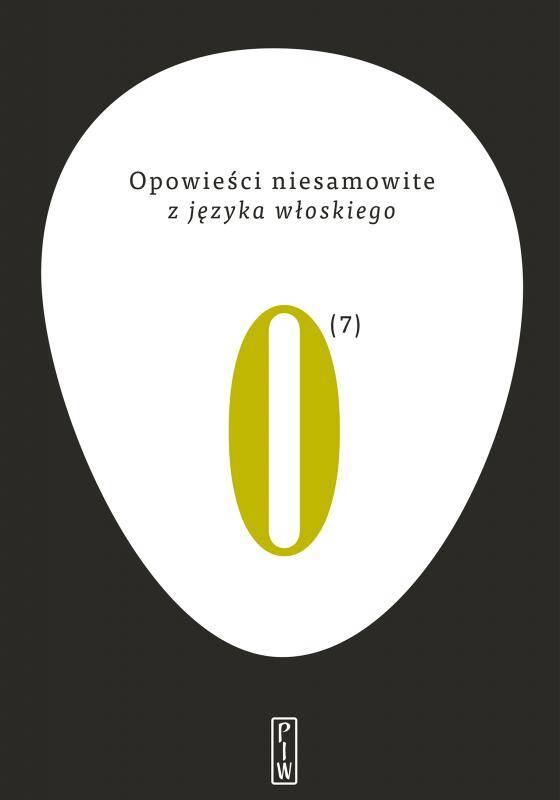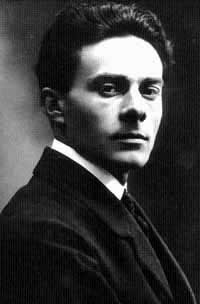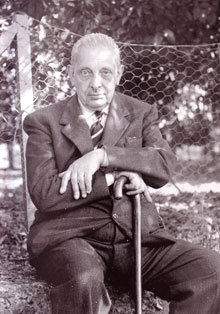
Part of Series
Authors

Antonio Tabucchi was an Italian writer and academic who taught Portuguese language and literature at the University of Siena, Italy. Deeply in love with Portugal, he was an expert, critic and translator of the works of the writer Fernando Pessoa from whom he drew the conceptions of saudade, of fiction and of the heteronyms. Tabucchi was first introduced to Pessoa's works in the 1960s when attending the Sorbonne. He was so charmed that, back in Italy, he attended a course of Portuguese language for a better comprehension of the poet.

Dino Buzzati Traverso (1906 – 1972) è stato uno scrittore, giornalista, pittore, drammaturgo, librettista, scenografo, costumista e poeta italiano. Dino Buzzati Traverso was an Italian novelist, short story writer, painter and poet, as well as a journalist for Corriere della Sera. His worldwide fame is mostly due to his novel Il deserto dei Tartari, translated into English as The Tartar Steppe.

Massimo Bontempelli was an Italian novelist, short story and theater writer, literary and art theorist and critic. Best known for coining the literary term Magical Realism and creating its theoretical framework. His efforts to implement this specific poetics in his writings begin after his initial experiments, first with traditional poetry (Carduccian classicism), then humorist, ironic stories (influenced by Pirandello) and short escapades in surrealism and futurism. Despite forming a literary model for Magic Realism with his own novels and short stories, Bontempelli's importance as a Magic Realist writer is mainly neglected and overthrown in contemporary theories on Magic Realism. Only few authors (mostly Italian authors but A. C. Hegerfeldt, A. B. Chanady, I. Guenther as well) acknowledge Bontempelli's significant role for the development of Magic Realism, but unfortunately, not all of them manage to go further then Franz Roh's and Alejo Carpentier's theories in the debate over the origin and literary use of the term. Bontempelli graduated from the University of Turin gaining two diplomas, in Classical Studies and in Philosophy. He worked as a journalist, teacher and served as an artillery officer during the First World War. In 1924 Bontempelli entered Mussolini's fascist movement and in the same year, together with his friend Luigi Pirandello, he founded Teatro degli Undici. In 1926, co-founded the literary review 900: Cahiers d'Italie en d'Europe with Curzio Malaparte. Despite Malaparte's abandoning the review even before the first issue was published, Bontempelli had succeeded, with the help of Nino Frank, to form an impressive editorial committee which included Max Jacob, André Malraux, Rainer Maria Rilke, and James Joyce and contributions from Pierre Mac Orlan, Philippe Soupault, Georg Kaiser, Ivan Goll and Ramòn Gomez de la Serna. In the first issue Bontempelli presented his theory of Novecentismo and Magic Realism and articulated literary positions that became points of reference in literature. In 1930 Bontempelli becomes a member of the Italian Academy. In 1938 Bontempelli was offered Attilio Momigliano' chair at the department for Italian Literature at the Florence University (which Momigliano was forced to give up because of the anti-Semitic legislation) but refused the position and was subsequently banished to Venice and censored by the regime because of his critic towards fascist leaders. In 1953 Massimo Bontempelli is awarded with Italy's highest literary award, the Strega Prize, for his collection of short stories L'amante fedele (The Faithful Lover).


Novels, such as Time of Desecration (1978), of Italian writer Alberto Moravia, pen name of Alberto Pincherle, explore the alienation and ennui of the middle class. Alberto Moravia, pseudonimo di Alberto Pincherle (1907 – 1990), è stato uno scrittore, giornalista, sceneggiatore, saggista, drammaturgo, poeta, reporter di viaggio, critico cinematografico e politico italiano. Considerato uno dei più importanti romanzieri del XX secolo, ha esplorato nelle sue opere i temi della sessualità, dell'alienazione sociale e dell'esistenzialismo. Alberto Moravia, born Alberto Pincherle, was one of the leading Italian novelists of the twentieth century whose novels explore matters of modern sexuality, social alienation, and existentialism. He was also a journalist, playwright, essayist and film critic. Moravia was an atheist, his writing was marked by its factual, cold, precise style, often depicting the malaise of the bourgeoisie, underpinned by high social and cultural awareness. Moravia believed that writers must, if they were to represent reality, assume a moral position, a clearly conceived political, social, and philosophical attitude, but also that, ultimately, "A writer survives in spite of his beliefs". Between 1959 and 1962 Moravia was president of PEN International, the worldwide association of writers.

Luigi Pirandello; Agrigento (28 June 1867 – Rome 10 December 1936) was an Italian dramatist, novelist, poet, and short story writer whose greatest contributions were his plays. He was awarded the 1934 Nobel Prize in Literature for "his almost magical power to turn psychological analysis into good theatre. Pirandello's works include novels, hundreds of short stories, and about 40 plays, some of which are written in Sicilian. Pirandello's tragic farces are often seen as forerunners of the Theatre of the Absurd.



